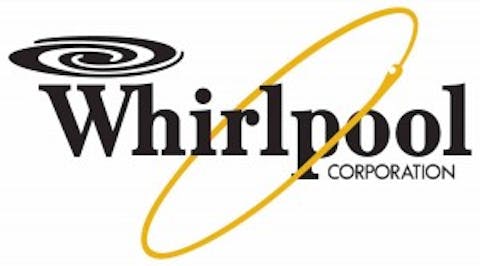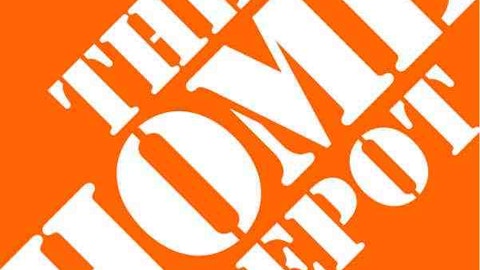![]() A recent fit of virtuous (if misguided) housecleaning ended up costing me $600, but what I learned in the process could provide you with a chance to get in on a secondary play of a recovering sector.
A recent fit of virtuous (if misguided) housecleaning ended up costing me $600, but what I learned in the process could provide you with a chance to get in on a secondary play of a recovering sector.
It started when I decided to clean under the refrigerator for the first time in quite a while. I took my time sweeping up the accumulated gunk, vacuuming the coils and disinfecting the unit from top to bottom.
But when I plugged the fridge back in, the outside began warming up and the inside stopped being cold. Some 24 hours and a half-dozen Web searches later, I realized my mistake.
To get under the unit, I tilted it and rested it on a chair while I cleaned. I’m not strong enough to hold the fridge up with one hand and sweep with the other, but tilting it had burned out the compressor, which moves the refrigerant through all those now-clean metal coils. Whoops.
I decided it was time to buy a new fridge. Shopping for a new unit took me to several home improvement stores — and to my surprise, they were all jammed. Appliances, tools, paint and lumber — every section was hopping, and much more than I’d seen in years. Had everyone just broken something at the same time?
No. What I stumbled on was a boom in the home improvement industry resulting from a recovering housing market.
In June, the monthly sentiment index from the National Association of Home Builders (NAHB), known as the Housing Market Index (HMI), moved into the positive for the first time since April 2006. The HMI jumped 8 points to 52 (anything greater than 50 indicates positive sales conditions). NAHB Chief Economist David Rowe has predicted housing starts will top 1 million this year for the first time since 2007.
In addition, investors flipped more than 136,000 single-family homes during the first half of this year, according to research firm RealtyTrac’s mid-year flipping report. That’s 19% higher than the pace last year and 74% percent higher than in 2011 — and it’s on pace to exceed the nearly 233,000 houses flipped in 2006 at the height of the housing bubble.
What do these numbers mean? The current housing boom isn’t just the work of homeowners — the pros are back. And what do the pros do? Spend money to freshen up a property and then resell it.
The Home Improvement Research Institute (HIRI) sees the same trend. HIRI expects total home improvement sales to increase 4.3% this year, to $287.3 billion, and another 5.7% next year.
Next, I looked at several home improvement stocks to see whether those spending numbers were translating into improved financial results.
It sure looks that way: Lumber Liquidators Holdings Inc (NYSE:LL) is up more than 160% in a year, and the slowest growth in the sector was still over 30%. In my opinion, investing in this sector provides a prudent and lucrative way to tap into the recovery in the housing market. Here are a few of my favorites:

Stanley Black & Decker, Inc. (NYSE:SWK) announces its earnings expectations on July 26, and I would wait until after that to buy as I expect SWK will dip on slightly contracted revenues and earnings per share. However, this stock could be a really stable investment. It yields a 2.5% dividend, which has grown by about 6% annually over the past decade.
Williams-Sonoma, Inc. (NYSE:WSM) has been hitting 52-week highs this month, but I think it’s got room to grow because it has been expanding its margins and moving ahead with expansion plans. Williams-Sonoma, Inc. (NYSE:WSM) also continues to increase its direct-to-consumer revenues as a percentage of its total revenue.
Risks to Consider: The housing sector is cyclical: HIRI forecasts spending will level out in 2015 and 2016. Therefore, home improvement companies are not set-it-and-forget it stocks for the most part, and you will want to revisit your portfolio in a year to gauge whether to take your profits and pull out before the sector turns.
Action to Take –> While the entire sector shows upside, my favorites are Whirlpool Corporation (NYSE:WHR), Williams-Sonoma, Inc. (NYSE:WSM) and Stanley Black & Decker, Inc. (NYSE:SWK) because they have significantly lower price-to-earnings ratios than their peers — which tells me they’re still undervalued — and offer a high dividend yield. Dividend yields are attractive not only because they put additional money in the investor’s pocket — they also indicate a high level of fiscal responsibility.
In the interest of full disclosure, I ended up buying an Amana fridge from The Home Depot, Inc. (NYSE:HD) because they had the best price, plus free home delivery and takeaway of the old unit. I paid extra for a warranty in case I get it in my mind to do any more cleaning.
Warren Buffett’s Top 5 Stocks
Buffett’s firm, Berkshire Hathaway, holds dozens of stocks. But these five make up 75% of its portfolio… worth $65 billion. Click here to get Buffett’s top 5 stocks plus his 16 latest buys, FREE.
This article was originally written by Bristol Voss and posted on StreetAuthority.




